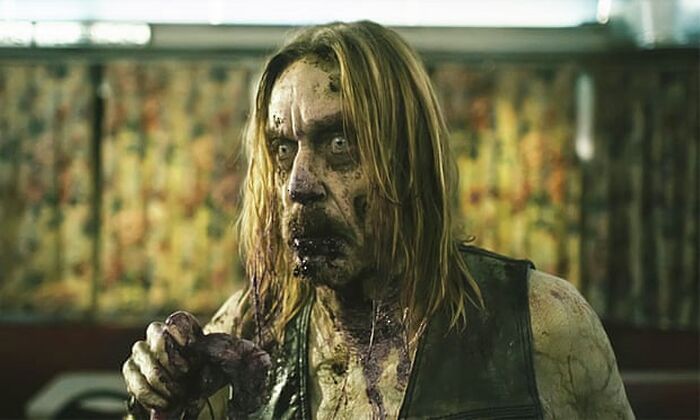The Souvenir is a dark gift you won’t forget
This tragic memento of youth reminds Madeleine Pulman-Jones that it isn’t always easy to remember

Content notice: this article mentions drug addiction as depicted in The Souvenir.
This review contains spoilers.
The title of Joanna Hogg’s fourth feature film, The Souvenir, is perhaps misleading. Ostensibly a reference to a painting by Jean-Honoré Fragonard, the title is, more importantly, a self-referentially ironic nod to the impossibility of conserving one’s own history. Do not go into The Souvenir expecting one yourself – you are sure to leave empty-handed.
The Souvenir is a memoir of Hogg’s experience as a young filmmaker. The film opens in 1980s London on Hogg’s fictional counterpart, Julie (Honor Swinton Byrne), a fragile film student set on making a feature film set in working-class Sunderland.

Julie is well-intentioned, but her Sunderland story can’t seem to shake off the Knightsbridge flat it was written in. Her film school professors ask, “What makes you want to leave your own experience so radically?”, to which she sincerely replies, “I don’t want to live my whole life in this very privileged part of the world I come from.”
After a chance meeting, Julie begins a knotty relationship with a charismatic older man, Anthony (Tom Burke), who claims to work for the Foreign Office. As the truth about his crippling heroin addiction unravels, Julie struggles to disentangle herself from what becomes at once the greatest happiness and deepest sadness of her newly adult life. It turns out Julie didn’t even need to leave Knightsbridge in order to fundamentally “leave her own experience”. Experience had come to her.
Almost the entire film takes place in Julie’s apartment, based on the apartment in which Hogg once lived. Julie’s world is mired in material manifestations of the past – antique jewellery, old-fashioned clothes, film reels. Material evidence of her present, however, is conspicuously absent. Apart from the letters he sends her, Anthony’s presence in Julie’s life is all but invisible. Though she’s a keen photographer of her friends, there are no photographs of Anthony or the pair of them in Julie’s apartment. The souvenirs of Julie and Anthony’s relationship are few and far between, yet often shocking in their persistent presence - be that of the syringe next to Julie’s sink, or the coat left on the bed at the film’s tragic conclusion.
“The Souvenir is more concerned with the act of remembering than the possession of memories”
The Souvenir is more concerned with the act of remembering than the possession of memories. In a recent interview with The Guardian, Hogg declared herself “none the wiser” about her own relationship that inspired the film, and it is Hogg’s evident comfort with this uncertainty that prevents the film from straying into sentimentality.

While the foundations of the film may have been literal souvenirs of Hogg’s own youth – diaries, objects, letters – the film’s own raison d’être is far from merely that of a souvenir. Hogg seems intent on celebrating the inaccessibility of memory. She shoots arguments as reflected in mirrors, phone conversations glimpsed through doorways, feet climbing the stairs to an opera house but not the opera itself.
Honor Swinton Byrne gives an electrifying debut performance as the fractured Julie, gradually building a language of vulnerability which extends beyond quivering half-sentences and into an unnerving physical stillness.
Her rapport with her onscreen and offscreen mother, Tilda Swinton, has been much commented on, but the dynamic between her and Tom Burke is still more unsettlingly natural. The two shift from humorous references to It Happened One Night to tragic scenes of emotional collapse with ease – one never seems less important than the other. Swinton Byrne’s knowing look to the camera at the film’s conclusion is a charming cinematic memory of her mother’s Orlando. For director Sally Potter, Tilda Swinton’s coy glances at the camera in Orlando served as a cinematic equivalent of the first person in Virginia Woolf’s novel. I can’t help but assume a similar significance for Hogg – that Swinton Byrne’s gaze constitutes a kind of signature.
Hogg paints a compelling portrait of upper-class coming of age. Those who question the morality of such a story in today’s political climate might ask themselves the professors’ all-too-prescient question: what should make Joanna Hogg want to leave her own experience “so radically?” Memoir and auto-fiction have rarely been as popular as they are now, and yet the ethics of autobiography have never been more fraught.
Hogg’s is a film which does not indulge in the glamour of a privileged upbringing, but one that illustrates its coming apart at the seams.
During his first date with Julie, Anthony declares, somewhat pretentiously, that he likes the director/producer team, Powell and Pressburger, because “they manage to be truthful without being real.” This is what Joanna Hogg has achieved with The Souvenir – cinema that is truthful without being real, a past remembered that is not merely a memory.
 Comment / Cambridge students are too opinionated 21 April 2025
Comment / Cambridge students are too opinionated 21 April 2025 Interviews / Meet the Chaplain who’s working to make Cambridge a university of sanctuary for refugees20 April 2025
Interviews / Meet the Chaplain who’s working to make Cambridge a university of sanctuary for refugees20 April 2025 News / News in brief: campaigning and drinking20 April 2025
News / News in brief: campaigning and drinking20 April 2025 Comment / Cambridge’s tourism risks commodifying students18 April 2025
Comment / Cambridge’s tourism risks commodifying students18 April 2025 Comment / Does the AI revolution render coursework obsolete?23 April 2025
Comment / Does the AI revolution render coursework obsolete?23 April 2025






